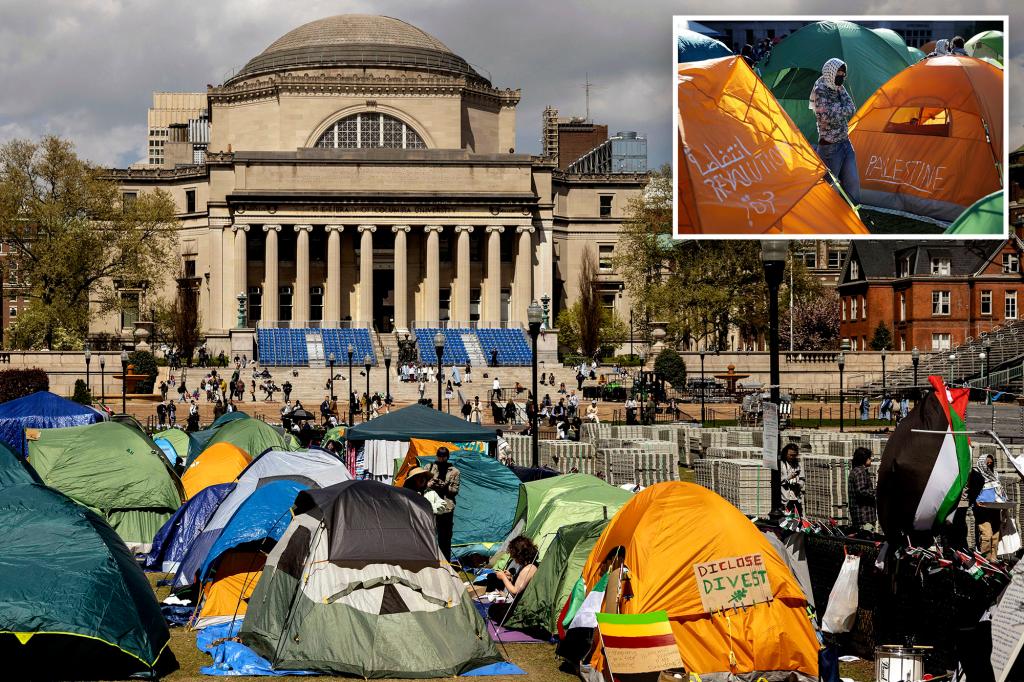The anti-Israel encampment at Columbia University has been ongoing for ten days, with student organizers refusing to consider taking down the tents until the administration addresses their demands. Negotiations between the two parties have centered around five core demands, which include divesting from companies that profit from Israeli apartheid and genocide. The students are also calling for the university to cut ties with Israeli universities and cease expansion into certain areas. Other demands include defunding campus Public Safety and a public statement calling for a ceasefire in Gaza.
The encampment has caused tension on campus, leading to arrests and a movement of similar encampments on other university campuses across the country. Student organizers are firm in their resolve, rejecting the university’s proposals of further engagement with Israel and bureaucratic red tape regarding divestment decisions. They feel that the university underestimates their commitment to staying on the lawn and standing by their demands. The encampment has also raised concerns among Jewish students at Columbia, who report feeling unsafe due to the protesters’ calls for Israel’s destruction and support for Hamas.
As the encampment continues, it has disrupted campus life and led to frustration among some members of the community. Some students are voicing their desire to move past the protests and return to normalcy. The encampment has received criticisms for being selfish and not taking other students’ needs into consideration. The images of the encampment show the once-stately campus overrun with tents and supplies, creating a chaotic atmosphere that has disrupted the university’s operations.
The negotiations between student organizers and university officials have been rocky, with the university seemingly backtracking on prior demands for the students to clear off the campus lawn. The students are adamant about focusing on their demands rather than discussing the state of the encampment, and they refuse to operate under time pressure. The encampment is seen as a symbol of their commitment to achieving divestment and boycott of institutions complicit in Israel’s actions. The ongoing protests have highlighted deep divisions on campus following recent events in the Middle East and have sparked conversations about free speech and protest rights.
Despite the challenges, the encampment continues as students stand their ground and demand accountability from the university. The encampment has become a focal point for discussions about divestment, human rights, and the Israeli-Palestinian conflict on campus. The encampment has also rallied support from activists across the country who see it as a symbol of student resistance and solidarity. The outcome of the negotiations between students and university officials remains uncertain, but the encampment has already made a significant impact on the campus community and sparked important conversations about justice, activism, and solidarity.


